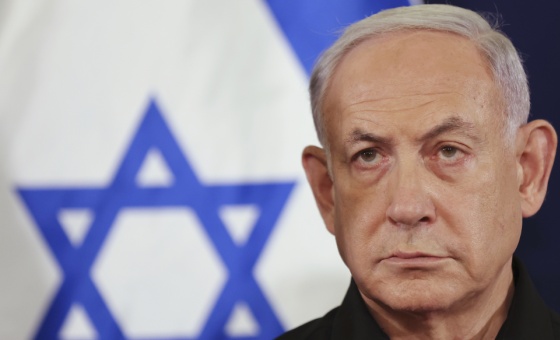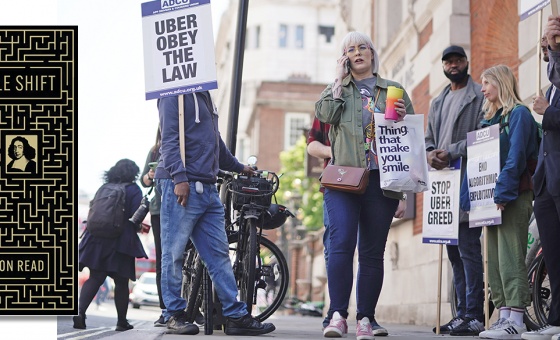This is the last article you can read this month
You can read more article this month
You can read more articles this month
Sorry your limit is up for this month
Reset on:
Please help support the Morning Star by subscribing here
ZDENEK HORENI, the former editor of Rude Pravo and leading correspondent for the Morning Star’s sister paper Halo Noviny, died in Prague’s Thomayer Hospital, on Friday February 12 2021, at the age of 91.
His long, rich and adventurous life as a campaigning journalist was shaped by his experiences of growing up under the Nazi occupation, by the February revolution of 1948 and by the struggle to maintain socialism in Czechoslovakia and latterly, the Czech Republic.
Born in the northern town of Frydstejn, on February 9 1930, on the fault line between Masaryk’s young republic and Hitler’s Germany, he witnessed the collapse of Czechoslovakia after the Munich accords of 1938 and the seizure of his hometown as part of the Sudetenland, territories effectively gifted by Western liberal democracy to Nazi Germany as the price of appeasement.
This, he later recalled, was a time when Czechs faced the possible extinguishing of their nationhood and the destruction of their culture through forced deportations and the terror unleashed following the assassination of Reinhard Heydrich in 1942.
He was in no doubt as to the effectiveness of the resistance movement inspired by the Communist Party of Czechoslovakia or to the heroism and sacrifice of its leading figures such as Julius Fucik, Honza Zika and Jan Sverma.
As an old man in his Sunday walks through Prague, Horeni would often pause for a moment and point out places connected with the liberation of the city and the rising of May 1945: in the Old Town there had been a barricade; behind Wenceslas Square the nondescript concrete building used by the Nazis as a radio station had been stormed; along the hill lines to the north of the city the first column of the tanks of the Red Army had appeared.
In 1954, he joined the staff of the main national newspaper, Rude Pravo, (Red Justice), becoming a foreign correspondent and working in Moscow in 1962 and 1968. As a consequence, he was distanced — by both geography and politics — from the events of the Prague Spring. Indeed, Alexander Dubcek chose to characterise him as a Marxist “frantic” in the pages of his memoirs.
It was a crude jibe, but one that indicated both Horeni’s enduring political inspiration and the influence that he exerted within the working-class membership of the Communist Party. It certainly did not tally with what I knew of the man, who was as far from the stereotypical apparatchik as it was possible to get.
Measured, unflappable, with a dry sense of humour and a twinkle in his eye, he was a cultural as well as a political commentator, who had known Nezval and Trnka and who could turn, in an instant, from a discussion of Marx to the romantic poet Macha. Tennis and later ice hockey — through his grandson’s participation — were his sporting passions, and he rarely missed a tournament or a national game.
After a spell editing the Tribuna magazine, he was appointed editor of Rude Pravo in 1969. It was a post that he would hold and excel in, for the next 30 years.
In 1970, he was awarded the national prize for journalism and from 1972 to 1983 was the president of the Czech journalists’ union. He was elected as a member of the national council of Czechoslovakia in 1976 and served for two terms before moving to the chamber of deputies, representing the industrial and mining community of Most, in Northern Bohemia, between 1986 and 1990.
With a flair for grassroots constituency politics, an application to detail and a clear affinity with working people, in 1980, Horeni was awarded the Order of the Republic.
Moved sideways in 1987 after Gorbachev directed the overhaul of the machinery of the Czechoslovak Communist Party that shredded the ideological base of government, he became chair of the Czechoslovak-Soviet Friendship Society, which at that point was a mass organisation with more than two million members.
He was under few illusions about the counter-revolution of 1989. At the end of that November, he chaired a last session of the press commission that stretched on late into the night and appeared before his loyal staff at Rude Pravo to say farewell and to thank all of those who “had not turned their coats for a place in the sun.”
In the post-socialist years, as Czechoslovakia broke up into its constituent parts and the refounded Communist Party, the KCSM, faced bans, sequestration and court cases against its leading members, Horeni remained true to his convictions and began the quiet, patient and unglamorous work of rebuilding alliances and a shattered left.
He never once despaired of the task or bemoaned what had been lost. Schooled in the lessons of the European revolutions of 1848, the Paris Commune and the anti-fascist struggle, he understood the nature of defeat as well as victory and never believed in the inevitability of socialism.
Over the next three decades he wrote for a plethora of left-wing publications, most notably Halo Noviny and the English-language digest Postmark Prague, edited by the late Ken Biggs.
Active in the Czech-Cuba friendship society, he was also elected many times as the chair of the Julius Fucik Society, which celebrated the life of the nation’s resistance leader, whose reputation, integral to the legitimacy of socialism in the Czech and Slovak republics, had been dragged through the mud. His short biography of Fucik remains an excellent and evocative study of the man and his achievements as literary critic, journalist and anti-fascist fighter.
Blessed with a close and loving family, Horeni’s health remained strong throughout his years of retirement and he was in fine and seemingly robust form over the Christmas period despite his advancing age. However, Covid-19 resulted in his hospitalisation at the beginning of February and complications caused by pneumonia resulted in his death.
He will be remembered as one of the leading journalists of his generation, for whom reportage was both an art and a profound calling, as well as being a man of deep convictions who held firm to socialism and provided a beacon of hope and a sure vision for the left in the Czech Republic after the collapse of 1989.
His image remains imprinted from the crowded meetings and rallies held in the miners’ hall at Most; the annual peace march to Lidice; from visits to the snowy battlefield of the Hussites at Lipany; and his practice of surveying at 10 each evening the proof copies of the next day’s paper in the compositors’ offices at Rude Pravo and Halo Noviny.
His familiar figure is gone, but he would not have wished anyone to mourn. Far better to organise underneath the banner that he carried, cherished and handed on.
Dr John Callow is a fellow of the Royal Society of Arts.










